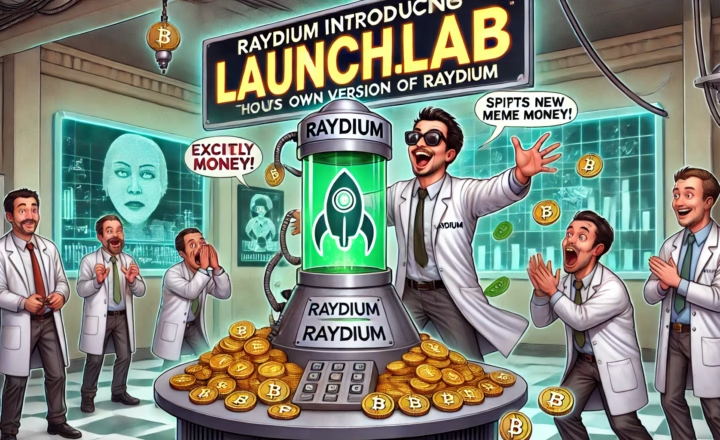K-12 Education Firm Joins Growing Trend of Public Companies Allocating to SOL
Classover, an international K–12 education platform, has announced plans to allocate a substantial portion of its capital into Solana (SOL) as part of a new crypto treasury strategy. In a move that underscores growing corporate interest in blockchain-based assets, the company said it will issue up to $500 million in senior convertible notes, with 80% of the proceeds earmarked for Solana purchases.
The announcement, made on June 2, also revealed that Classover has already acquired 6,472 SOL — worth approximately $1.1 million — to begin building its Solana reserve.
Convertible Note Issuance to Fund Crypto Expansion
The $500 million in convertible notes will be issued in partnership with Solana Growth Ventures, a blockchain-focused capital firm. These debt instruments are designed to convert into equity at a future date, allowing the company to raise capital without immediate dilution.
According to Classover, the convertible notes complement an existing $400 million equity purchase agreement, giving the company up to $900 million in total Solana purchasing power.
“This dual financing approach allows us to expand our balance sheet strategically while integrating crypto into our long-term treasury management,” the company said in a statement.
Classover’s Core Business and Market Response
Classover is primarily known for providing online education courses for K–12 students around the world. The company’s entry into the crypto space represents a diversification of its corporate strategy, combining education technology with digital asset investment.
Following the announcement, Classover’s stock (traded on Nasdaq) rose sharply, reaching $5.45 on June 3 — a 46.5% intraday gain, according to Google Finance.
Market analysts suggest the stock surge reflects growing investor interest in companies that integrate blockchain strategies, particularly those that build on-chain reserves in top-tier assets like Solana.
Corporate SOL Treasuries on the Rise
Classover’s initiative adds it to a short but growing list of publicly traded companies that have adopted Solana as a core treasury asset. The trend mirrors the rise of Bitcoin treasuries among corporations such as MicroStrategy and Tesla, but with an emerging focus on Layer 1 alternatives that offer staking yield and DeFi compatibility.
In May 2025, Canadian firm SOL Strategies filed for regulatory approval to raise up to $1 billion to scale its SOL staking operations. The company’s Q2 earnings report cited rising income from validator rewards and delegated staking as a primary source of growth.
Likewise, U.S.-based Upexi, another Nasdaq-listed firm, announced in April that it would raise $100 million, with 90% of proceeds pledged for Solana purchases. Following the news, Upexi’s shares soared over 630%, reinforcing investor enthusiasm around crypto-aligned equity plays.
Why Solana? Strategic Rationale for Allocation
Classover’s selection of Solana aligns with the asset’s reputation for high throughput, low fees, and a rapidly growing developer ecosystem. In recent months, Solana has emerged as a hub for everything from DeFi and NFTs to tokenized real-world assets (RWAs).
For companies like Classover, Solana represents not only a potential store of value but also a productive on-chain asset capable of generating revenue through staking or participation in validator programs.
“Solana is becoming an integral part of the modern financial infrastructure,” Classover stated. “Our reserve strategy reflects our belief in SOL’s long-term value proposition and its capacity to diversify and strengthen our treasury.”
Convertible Notes vs. Equity: A Blended Capital Approach
The combination of a $500 million convertible note issuance and an existing $400 million equity purchase agreement gives Classover a blended capital strategy. Convertible notes allow for deferred dilution and flexible repayment terms, while equity agreements provide non-debt-based capital.
This structure mirrors tactics used by other companies entering the digital asset space, where volatility in token prices can impact both cash flow and balance sheet dynamics.
Financial analysts say the $900 million potential purchasing power positions Classover as a top corporate holder of SOL, should the strategy be fully executed.
Outlook and Market Implications
As corporate treasury strategies evolve beyond traditional cash and bonds, companies are increasingly looking to blockchain-native assets like Solana for yield generation, liquidity access, and innovation signaling.
The move by Classover may:
-
Influence other non-financial companies to explore crypto reserve strategies
-
Draw institutional investor attention to the Solana ecosystem
-
Prompt regulatory discussions around corporate management of crypto assets
While some critics may question the volatility risks of such a large crypto allocation, proponents argue that allocating to productive digital assets can offer superior returns and operational flexibility, especially for companies with digital-native business models.
Conclusion
Classover’s announcement of a $500 million convertible note deal to fund a Solana reserve marks a notable shift in how public companies are incorporating crypto assets into their corporate strategy. With up to $900 million in capital potentially flowing into SOL, the education firm is now among the most ambitious non-financial institutions entering the digital asset space.
As more companies adopt similar models, Solana may become a key asset in the next wave of crypto-integrated treasury management — especially for firms seeking a blend of growth potential, ecosystem access, and blockchain-native yield.












